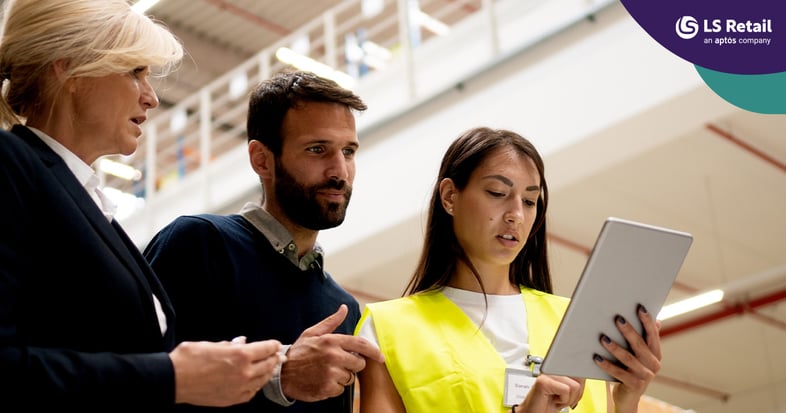What retail CEOs need to know to lead their business into the future

Shifting consumer behavior is changing the face of the retail industry. The skillset that today’s retail CEOs require to lead a company into the future is going through changes, too. Flexibility, and the ability to foresee trends and move in the right direction quickly have become two necessary traits for tomorrow’s CEOs. “The business is changing so quickly and dramatically that you have to have people who are able to adapt,” said Paula Williamson-Reid, president of Reid & Co Executive Search LLC.
According to the report “The DNA of the Future Retail CEO” from the World Retail Congress, retail CEOs also need:
- a good understanding of retail products
- knowledge of store operations
- a data- and insight-driven approach to digital commerce and omni-channel.
“[When we recruit], we’re looking for a leader — whether it’s a marketer, a merchant or a head of operations — to have an understanding of how to build a business based on technology and a strong data foundation,” confirms said Kathy Ventura, managing partner, consumer and marketing practice at Caldwell, an executive search consultancy firm. “Then, they have to take that data and [apply it to] building an experience for customers.”
Flexibility, speed of action, product and operations knowledge, expertise in data analysis – this is a very demanding list of attributes. Unsurprisingly, the report by the World Retail Congress admits that few of today’s CEOs have the needed skillset. “Out of 10, only about four retail CEOs would qualify if they had to re-apply [for their jobs],” says Bijou Kurien, former President & CEO at Reliance Retail, India.
Luckily, CEOs are not alone in managing their retail companies. Two key elements can make the difference between shooting in the dark and creating an effective, data-based company strategy:
- Having competent employees and consultants who help steer the business.
- Using the right technology.
But how to choose the right technology, when IT moves even faster than consumers? It pays off to concentrate first on what goals you want to achieve, and then analyze what technology can help you get there. Here are 3 tips for CEOs to stay on top of the newest technological, financial, and retail trends.
 1) Get a single overview of your core business functions
1) Get a single overview of your core business functions
To understand where your business is heading and how to steer it, you need a vision that is clear, comprehensive, and timely. If you are using pieced together systems, no matter how well integrated, you cannot gain the real-time visibility you require. Worse, you risk having to make decisions based on data that’s old, partial, or plain incorrect. A unified modular system brings together the various software solutions used to run the retail business, from back-end to front-end and across all channels, into one platform. You can then track financials along with inventory, sales, customer satisfaction, and all other moving pieces of retail within the same software platform, getting the visibility you need to make both long-term and day-to-day business decisions.
And when you are working with consistent, reliable data, then you have the right setup to add business intelligence tools. These Artificial Intelligence-powered system can help you make the most out of your data, connecting various aspects of your company into a meaningful overview and giving you insights that lead to even smarter business decisions.
 2) Set the goals for your company, but be ready to adapt to change
2) Set the goals for your company, but be ready to adapt to change
Retail changes quickly, but a retail leader needs to decide which twists and turns aren’t worth following, and which ones matter. Richard Branson has said that the head of the company must set the vision, but be ready to change course when needed. Perhaps launching pop-up stores has never made sense within your business strategy until now – but the tide might be changing. It can make sense to jump on a new trend if the project fits with the overall vision of the company and it helps you keep up with the industry and consumers.
For example, during the Covid-19 crisis UK supermarket Morrisons partnered up with Amazon Prime to increase its reach to as many customers as possible nationwide. The company also launched a new shopping service to let vulnerable and elderly people order grocery via television and phone service. “Expanding this fast home delivery service to more cities will help us to play our full part in feeding the nation,” said David Potts, Morrisons CEO, underlining how sometimes it makes sense to take a counterintuitive step – such as opening a phone ordering service in the era of omni-channel, or teaming up with a competitor – if it serves the company’s vision.
 3) Know how your retail business is doing and where it is going
3) Know how your retail business is doing and where it is going
Writer and aviator Antoine de Saint-Exupéry famously said that “a goal without a plan is just a wish.” Strategic retail CEOs don’t make wishes for the company. Instead, they set goals, make a plan to reach them, and track their success on the way. If the retail goal is to sell more products online, a data-driven CEO needs to know where sales were before setting the goal, what data to monitor, and how to keep track of the data to know if the goal is being met. This is where key performance indicators, or KPIs, come in. KPIs are exactly the measures that a CEO needs to track how the company is doing financially and beyond. And this is where having adopted unified commerce can make a true difference. A unified commerce platform helps you collect and maintain in one place the data for all the KPIs you need to track. It also enables you to easily split the data between channels, product types, products, locations, and more, so you get the level of detail you need for your decisions.
“Do CEOs understand technology and data? No, probably not,” says Christine Cross, Advisory Board Member at River Island and Monsoon Accessorize. And a CEO who does not have a data-driven strategy won’t be able to lead the company to success. “It’s a bit like being a pilot of an A380 and not understanding what the controls do,” Cross adds.
Don’t be left behind as retail moves into the future. Be the strategic leader your company needs, but don’t try to do it on your own: get the right systems and data to inform and support your business decisions. Contact us to know more about how a unified commerce platform will drive you, and your business, into tomorrow and beyond.

